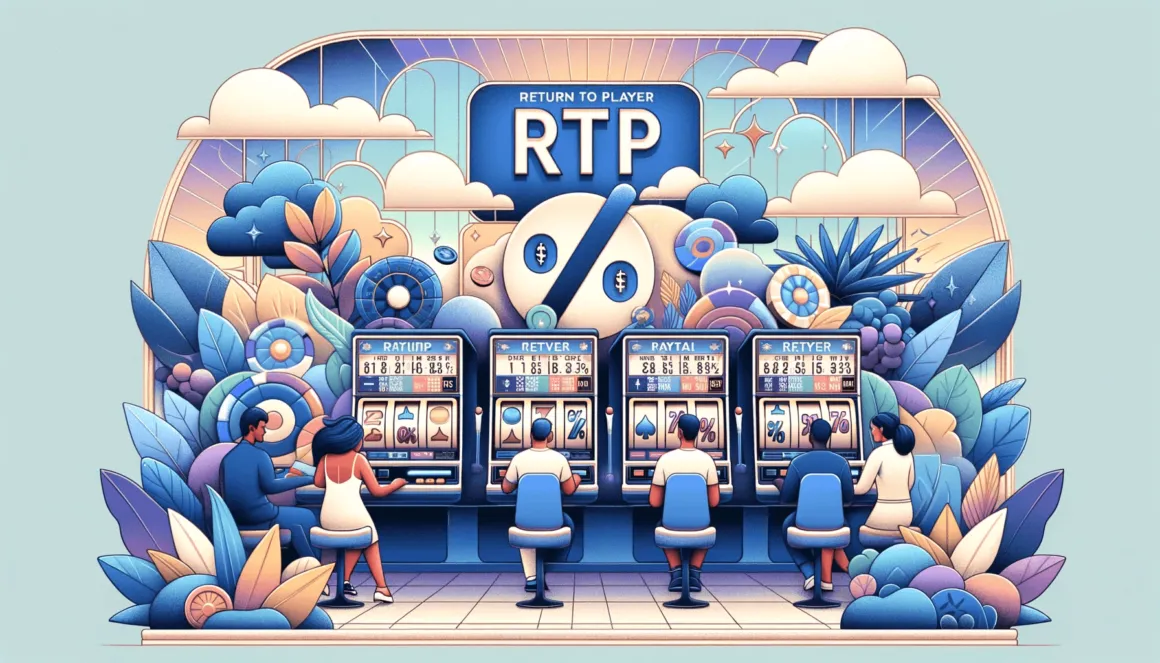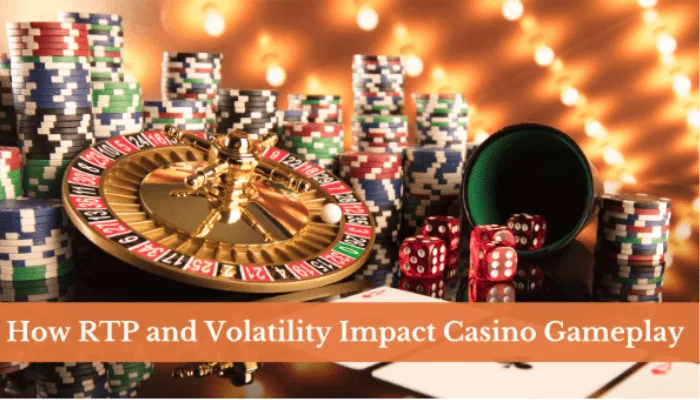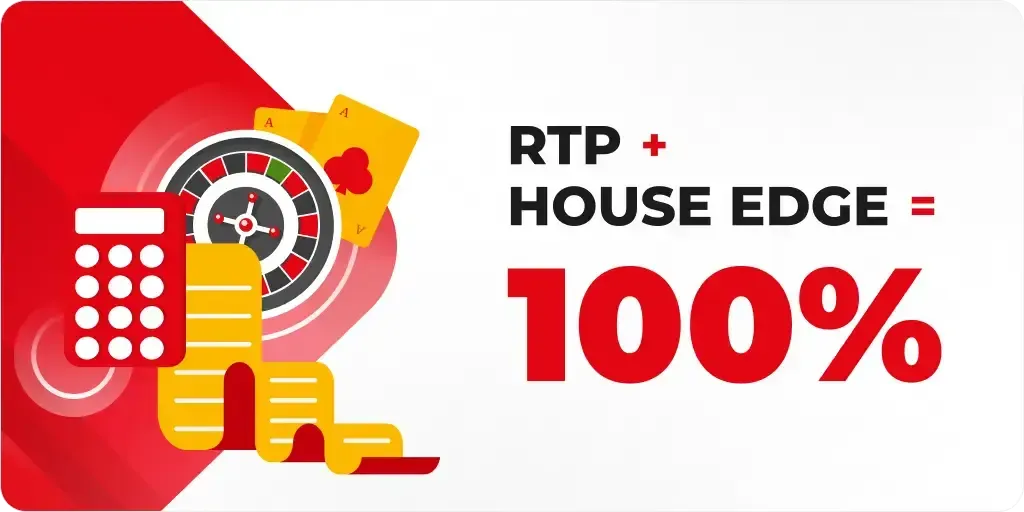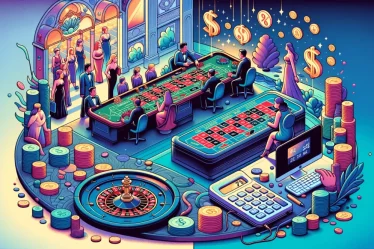
As online gaming continues to grow in popularity, it’s important for players to understand the key metrics that determine their chances of winning. One of the most important of these metrics is the return to player (RTP) percentage. This number indicates the amount of money that a game will pay back to its players over time, and it can have a significant impact on your overall gaming experience.
In this guide, we will take an in-depth look at return to player and how it affects your gameplay. We’ll explore what RTP is, how it’s calculated, and why it matters for online gamers. We’ll also provide tips on how to choose games with high RTPs to increase your chances of winning. So let’s dive into the world of RTP and discover why it’s such a crucial factor in online gaming.

1. What is Return to Player (RTP)?
What does RTP mean?
Return to player, or RTP, is a term used to describe the percentage of money that a game will pay back to its players over time. It is essentially the opposite of the house edge, which is the percentage of money that the casino will keep for itself. For example, if a game has an RTP of 96%, it means that it will pay back $96 for every $100 wagered by players. The remaining $4 is kept by the casino as profit.
How is RTP calculated?
The calculation of RTP is based on the total amount of money that has been wagered on a specific game over a long period of time. This includes all bets made by all players, not just your own. For example, if a game has a total of $1 million in bets and pays out $960,000 to players, its RTP would be 96%.
It’s important to note that RTP is not a guarantee of how much you will win while playing a game. It is simply an indication of how much money the game has paid out to players in the past. Your own individual results may vary significantly from the RTP, as gaming outcomes are based on luck and chance.
Why is RTP important?
RTP is important because it helps players understand their chances of winning while playing a specific game. A higher RTP means that more money will be paid out to players, giving them a better chance of walking away with some winnings. On the other hand, a lower RTP indicates that the game is more profitable for the casino, making it less likely for players to win.
2. How to Find High RTP Games
Research before you play
As a player, it’s important to do your research before choosing which games to play. With so many online casinos and gaming options available, it can be overwhelming to figure out which ones offer the best RTPs. Luckily, there are many resources available online that can help you find high RTP games.
Check the game’s information or paytable
One of the easiest ways to find out the RTP of a particular game is to check its information or paytable. Most reputable online casinos provide this information for each of their games, making it easy for players to make informed decisions. The paytable will also provide you with details about bonus features and any special rules that may affect the game’s RTP.
Choose games from reputable software providers
Software providers are responsible for creating and developing games for online casinos. It’s important to choose games from reputable providers, as they tend to have higher RTPs. These providers are heavily regulated and regularly audited, ensuring that their games are fair and that the displayed RTP is accurate.
Read reviews and forums
Another way to find high RTP games is to read reviews and forums. Other players may share their experiences and insights on which games have provided them with the best chances of winning. This can help you narrow down your choices and select games with higher RTPs.
3. The Relationship Between RTP and Volatility

Understanding volatility in gaming
Volatility, also known as variance, is a term used to describe how often and how much a game pays out. High volatility games tend to have large payouts less frequently, while low volatility games offer smaller wins more regularly. In other words, high volatility games have a larger risk-to-reward ratio, while low volatility games have a lower risk-to-reward ratio.
How does volatility affect RTP?
Many players believe that a high RTP automatically means that they will win more money when playing a game. However, this is not always the case. A game’s volatility can significantly impact the relationship between RTP and winnings. For example, a high RTP game with low volatility may pay out small wins frequently, while a high RTP game with high volatility may have bigger payouts but less often.
Choosing the right balance of RTP and volatility
When it comes to choosing games, the key is to find the right balance between RTP and volatility. You should consider your personal preferences and goals when selecting a game. If you prefer small and frequent wins, you may want to choose a low volatility game with a higher RTP. However, if you’re looking for a chance at a big payout, a high volatility game with a high RTP may be more appealing.
4. RTP and Bonus Features
Bonus features can affect RTP
Bonus features are a popular aspect of online gaming, offering players the chance to increase their winnings through special rounds and mini-games. However, it’s important to note that these features can affect the game’s overall RTP. Some bonus features have a lower RTP than the base game, which can ultimately lower the game’s overall RTP.
Reading the rules before playing
Before starting any game, it’s important to read the rules and understand how bonus features will affect your odds of winning. Some games may offer bonus features with lower RTPs but higher payouts, while others may offer more frequent bonus rounds with smaller payouts. It’s essential to understand these details to make an informed decision about which games offer the best chances of winning.
5. Understanding House Edge in Relation to RTP

What is house edge?
House edge is the percentage of money that the casino will keep for itself in the long run. It is essentially the opposite of RTP, where RTP indicates how much money is paid back to players. The lower the house edge, the better it is for players, as it means more money will be returned to them over time.
How does house edge affect RTP?
House edge and RTP have an inverse relationship. As the house edge decreases, the RTP increases, and vice versa. This means that if a game has a high house edge, its RTP will be lower, making it less likely for players to win. On the other hand, a lower house edge results in a higher RTP, giving players a better chance of walking away with some winnings.
Choosing games with low house edge
To increase your chances of winning, it’s important to choose games with low house edges. Fortunately, most reputable online casinos provide information on the house edge of their games, making it easier for you to make informed decisions. Generally, table games such as blackjack and roulette have lower house edges than slots, so they may be a better option for players looking for a good chance at winning.
6. RTP and Responsible Gaming
Setting limits while playing
While RTP can have a significant impact on your gaming experience, it’s also essential to practice responsible gaming. This includes setting limits for yourself, both in terms of time and money spent playing. It’s crucial to stick to these limits and avoid chasing losses, which can lead to problematic gambling behavior.
Understanding that luck plays a role in gaming
It’s important to remember that RTP and other metrics are just indicators of a game’s odds of winning. In the end, luck and chance play a significant role in gaming outcomes. No matter how high an RTP may be, there is no guarantee that you will win while playing a specific game. It’s essential to understand this and avoid becoming frustrated or chasing losses if you don’t experience the desired results.
Seeking help if needed
If you or someone you know is struggling with problem gambling, it’s essential to seek help. Many resources are available for those who need support, including hotlines, support groups, and therapy options. Remember to always prioritize your well-being and seek help if needed.
Conclusion: Understanding Return to Player in Online Gaming
Return to player is a crucial metric for players to understand when engaging in online gaming. It indicates the percentage of money that a game will pay back to players over time and can significantly impact your chances of winning. By doing your research, understanding volatility and house edge, and practicing responsible gaming, you can make informed decisions about which games offer the best chances of winning. Remember to always prioritize your well-being and seek help if needed. Happy gaming!


